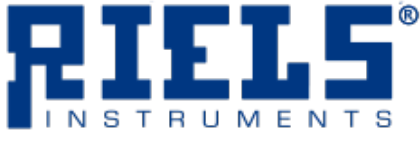Accredia Calibration Center
Riels® Instruments directly cooperates with the most important Accredia calibration centers recognized in Italy and/or foreign manufacturers.
The certificate issued by Accredia calibration centers certifies that, the calibration of the instrument has been performed according to the standard procedures recognized as valid by the primary institutes of competence. Accredia certified instruments and samples, are routinely used, as company primary samples for subsequent calibration of other instrumentation.
Riels® Instruments issues two types of calibration documents the Calibration Certificate (Accredia) and the Calibration Report with traceability to national samples since, it uses Accredia calibration centers.
DIFFERENCE BETWEEN ACCREDIA LAT ISO/IEC 17025 CERTIFICATE AND ISO 9001 CALIBRATION REPORT
ACCREDIA is the single national accreditation body designated by the Italian government. Its task is to certify the competence, impartiality and independence of those who must ensure a high degree of protection of public interests, such as health, safety and the environment.
ACCREDIA is a private nonprofit association that operates under the supervision of the Ministry of Economic Development and carries out an activity in the public interest, guaranteeing institutions, businesses and consumers.
ACCREDIA is a member of the EU and international accreditation networks and is a signatory to the relevant Mutual Recognition Agreements, by virtue of which the laboratory tests and certifications of ACCREDIA-accredited bodies are recognized and accepted in Europe and worldwide.
The ACCREDIA CALIBRATION CERTIFICATE is a document that can only be issued by one of ACCREDIA's accredited calibration centers.
This certificate is officially valid in Italy and with mutual recognition in EA (European Cooperation for Accreditation) and ILCA (International Laboratory Accreditation Cooperation) member countries.
ACCREDIA certificates relieve their users of any obligation to demonstrate to third parties that calibrations have been performed in accordance with the reference standard of the quality system of calibration centers (see UNI CEI EN ISO/IEC 17025) and with procedures approved by ACCREDIA.
Calibration laboratories accredited by an accreditation body that is a signatory to the International Mutual Recognition Agreements EA MLA and ILAC MRA, such as ACCREDIA, guarantee competence in carrying out tests and calibrations in accordance with international standards.
The Calibration Certificate contains all information about the instrument, such as: the date of calibration and serial number, measurement result, uncertainties, reference standards,instrumentation used, and environmental conditions present during measurements.
The CALIBRATION REPORT with traceability to national samples is a document issued by Calibration Centers through which the traceability of the measurement to national samples is ensured, without accreditation by the relevant bodies. The technical validity of these documents derives from the qualification of the laboratory, the technical competence of the operators and the metrological procedures used.
Calibration is an operation to determine the characteristics of a measuring instrument for the purpose of ensuring accurate and reliable results.
FREQUENTLY ASKED QUESTIONS
How often should I calibrate my instruments?
There is no legally defined timeline. In fact, the ideal timeline depends on many factors: the use of the equipment, its method of storage, the internal processes within each company that establish maintenance, and the timelines dictated by procedures related to quality systems, such as ISO 9001. It is good practice to calibrate instruments annually.
Can I get same-day calibration?
Calibrating an instrument is a process made up of mandatory steps-one of which is thermal conditioning. A 24-hour time interval that must precede calibration. Therefore, it is not possible to proceed with the operations immediately after the arrival of the instrument.
Do I also have to ship the accessories along with the instrument?
Yes, the instrument must be shipped, working and properly packed, complete with accessories and user manual.
What is the difference between Calibration and Tuning?
Calibration is an operation to define the metrological characteristics of an instrument in order to establish its accuracy. Tuning, also referred to in Italian as calibration, is a procedure that aims to make the measuring instrument in question more accurate and, often, results in improving its precision.
What are Accuracy and Precision?
Measurement Accuracy is not a quantity and, to it, a numerical value is not assigned. A measurement is considered to be more accurate the smaller the measurement errors that characterize it.Measurement Accuracy is expressed numerically by measures of imprecision, such as type deviation, variance, or coefficient of variation under specified measurement conditions.

